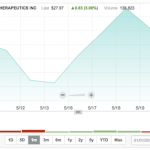The famous saying, “Demand creates its own supply,” by the economist John Maynard Keynes will remain relevant as long as humanity exists as a species that strives to satisfy its wants.
Since the inception of civilization, human instincts have not changed — what has evolved are the ways to satisfy them. The struggle for survival is the eternal engine of progress. The instinct of self-preservation drives us to protect ourselves and our loved ones. A safe and comfortable life is our natural desire, and the only way to get what we want is through mutually beneficial relationships where you can give something and get something in return — that is, through trade.
In the 21st century, it is extremely difficult to please the generation of super consumers. Everything is available to them, from supermarket shelves overflowing with food to the ability to order groceries from said supermarket right from the couch. Just order online and wait for the delivery. Here it is, the perfect life free of worries! But is it really all that perfect?
Why do we need a marketplace?
Human instincts have not changed, and neither have human vices. While honest entrepreneurs are constantly searching for the philosopher’s stone that will turn a business idea into an inexhaustible gold mine, con artists devise conniving schemes to profit from people’s ignorance and trust.
The stock exchange became a means of dealing with dishonest merchants, with the world’s first stock exchange opening in Belgium in 1406. The goal of stock trading was to bring sellers and buyers together in one place to exchange goods and services. The stock exchange acted as an arbitrator in disputes and monitored the participants. This helped to preserve quality, maintain market prices, increase the number of offers and ensure the availability of customers.
Marketplaces use the same principle of stock trading. It is convenient, beneficial and safe. An illegal online store could be a scam, but a marketplace will not permit fraudsters to trade on its site. As a regulator it cares about its reputation, which, as we know, is what a successful business is built on.
What is a financial marketplace?
Marketplaces exist in various business categories, from services to investments. You can order a taxi, buy clothes, book hotels and earn money, including in the financial market.
The financial marketplace is an entire universe of high-yield offers from international brokers and liquidity providers. It is the Amazon of the investment sphere, where user freedom is virtually unlimited. Such a financial supermarket brings together the best trading tools, the best quotes, flexible margin requirements and a transparent fee policy. Importantly, you can open an account without excessive paperwork nor the need to appear in person at the company’s office.
Is there a difference between working with a marketplace versus directly with a broker? We asked Lynne Connel, the founder of the ACB Incorporation LTD investment supermarket.
“There is a difference and it is substantial,” replied Connel. “To be frank, finding a reliable broker with an attractive offer is not an easy task. For example, I spend a lot of time and energy planning my vacation and choosing hotels that would meet my expectations in terms of price and quality. Now, if I had to invest $100,000 in stocks, I would have to thoroughly investigate each brokerage, and even after all that effort I am not guaranteed to receive the expected return. There are many pitfalls along the way, and, as a rule, a newcomer is doomed to lose a significant part of their deposit.”
“Yes, indeed, working with only one broker is no longer profitable,” added Joseph Noack, Business Development Director. “You may find the available instruments and quotes of one broker to be satisfactory, but they might charge a high fee. Another one might have even better terms but then have issues with withdrawing funds. The third may have slippages, or their terminal may be slow and so on. Choosing a broker on your own is very difficult. Add to this the fact that the largest liquidity providers do not work with retail customers directly, since providers need volume. Only financial marketplaces, such as the ACB investment supermarket, can provide such volume. Therefore, we can offer the best quotes to our users.”
Any marketplace, whether in the goods and services sphere or in the financial sphere, has a number of advantages over the classic trading system, in which the most common issue is the conflict of interest between the broker and their direct client. The investment supermarket acts as a regulator and, in case of any disputes, takes the side of the aggrieved.
Finally, it should be noted that in the tough competitive environment of today, only the business model of the marketplace is able to guarantee the quality of the services offered and the reliability of transactions to the user.













Leave A Comment